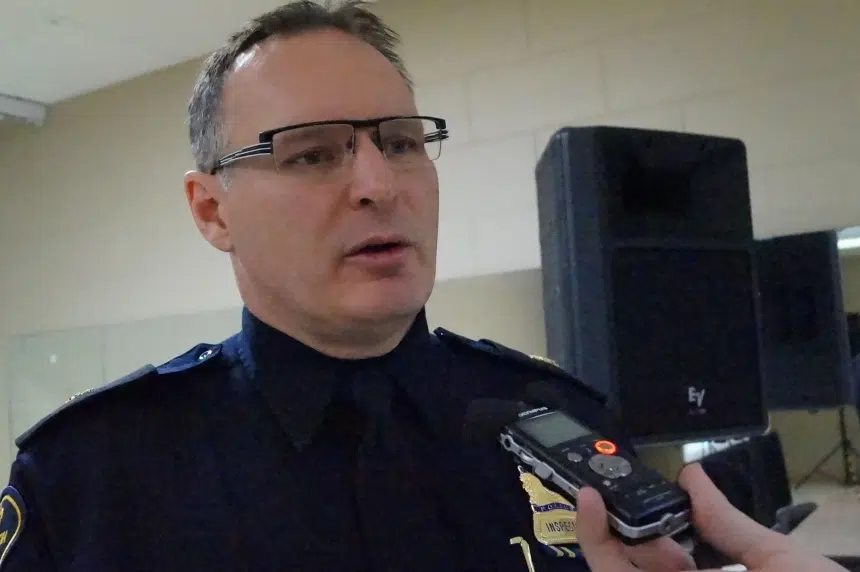It’s been one year since crisis workers were paired with Saskatoon police patrol officers.
In that time, they have dealt with over 900 calls dealing with the homeless and the mentally ill.
“A lot of the calls we respond to are non-criminal and are really outside the core training we receive,” Insp. Mitch Yuzdepski with the Saskatoon Police Service (SPS) said. “We’re used to criminal complaints and dealing with it with the criminal code and we’re done.”
But in June 2014, the Saskatoon Health Region and the provincial government collaborated to form a special unit called the Police and Crisis Team (PACT), a specialized unit where crisis mental health workers are paired with patrol officers to ensure people in a mental health crisis get the right help they need.
On Thursday, the health region presented results from the first year of the PACT unit collecting data from Nov. 1, 2014 to Oct. 31, 2015. In that time frame police responded to 875 calls dealing with homeless, mentally ill and intoxicated individuals.
Insp. Yuzdepski said before PACT, patrol officers weren’t prepared to deal with these types of calls, however, with the help of a crisis worker, those calls for service end with the person getting the help and the care they need.
“I spent 18 years as a patrol officer and I can say from my own experience sometimes you’re pulling your hair out wondering what you can do with a (mentally-ill) person because you just don’t know,” he said, adding the crisis worker now fills that void.
“We’ve seen that with increased admission rates in the emergency department with PACT versus non-PACT because we have a more complete picture and we have a focus on the client rather than the call.”
Before PACT, Insp. Yuzdepski said officers would present these individuals to the emergency room because they had no other contact points or resource available.
Minister Responsible for Corrections and Policing Christine Tell said mental-health training for police officers is something the provincial government is looking into providing; however that ultimately falls on the shoulders of the provincial board of police commissioners.
“There will be ongoing analysis as to whether we’re going to expand and where to,” Tell said. “We’ll wait to see what’s happening in Regina with their version of PACT.”
Results from the first 12 months of PACT show 97 people avoided going to the emergency room, 192 individuals required assistance to help with suicide, and 31 people were kept out of the court system.
For the Saskatoon Health Region, they project PACT helped them save nearly $200,000 in cost avoidance.
Insp. Yuzdepski said PACT is the difference between putting someone in a jail cell or finding them a solution.
“When you have a crisis worker stabilize that person, maybe it’s something as simple as someone has run out of their prescription … we can get him back on and when he’s on his medication he’s as good as gold,” he said.
There’s an unintended consequence as well, Insp. Yuzdepski said.
“I’ll call it an unintended benefit … we have a lot of non-PACT officers through osmosis are getting better training because they’re learning how PACT would respond to the call and having a better response themselves.”







